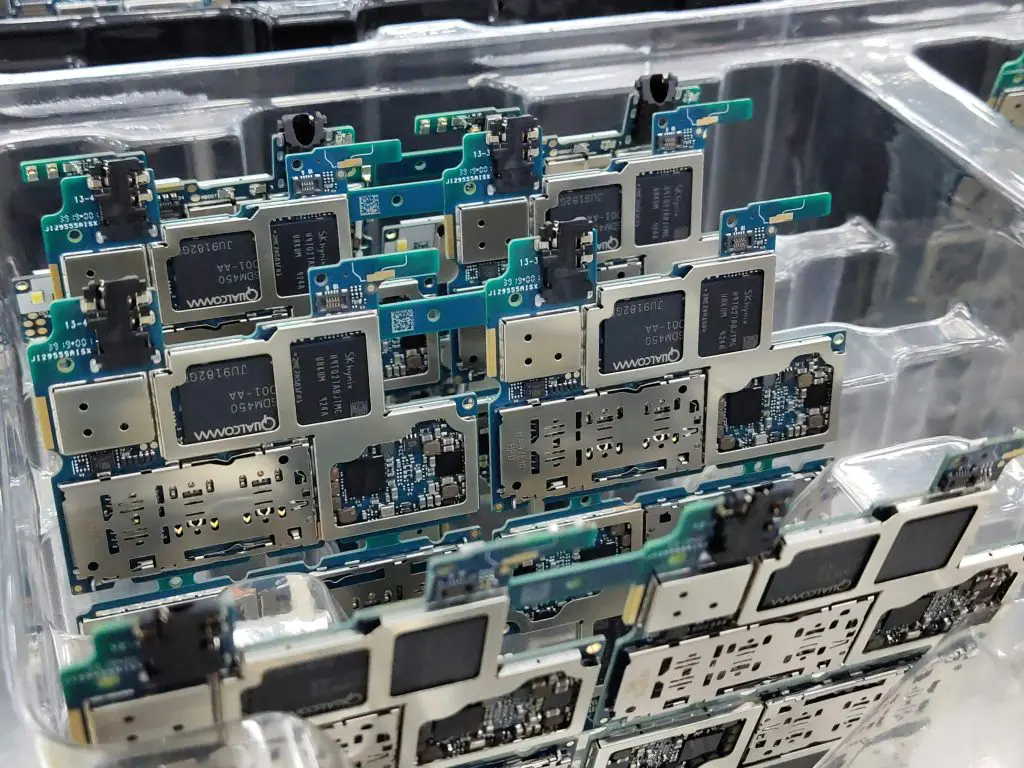
On 29 September, Ireland officially endorsed the Semicon Declaration, joining all EU member states in a coordinated effort to enhance Europe’s competitiveness, resilience, and strategic autonomy in the semiconductor sector. The endorsement took place during the Competitiveness Council and marks a key moment ahead of the upcoming revision of the European Chips Act, also known […]
On 29 September, Ireland officially endorsed the Semicon Declaration, joining all EU member states in a coordinated effort to enhance Europe’s competitiveness, resilience, and strategic autonomy in the semiconductor sector. The endorsement took place during the Competitiveness Council and marks a key moment ahead of the upcoming revision of the European Chips Act, also known as Chips Act 2.0.
Minister for Enterprise, Trade and Employment, Peter Burke TD, formally endorsed the Declaration on behalf of Ireland, stating:
“This is Europe’s moment to align national ambitions with a shared vision: to build a semiconductor ecosystem which secures our sovereignty, drives innovation while ensuring prosperity for generations to come.”
Burke emphasised that Ireland’s Silicon Island strategy, launched earlier this year, is fully aligned with the goals of the Declaration. This national initiative focuses on expanding manufacturing and boosting semiconductor research and development, ensuring Ireland plays a significant role in shaping Europe’s technological future.
The Semicon Declaration was initially proposed in March 2025 by nine EU countries, including France, Germany, the Netherlands, and Spain, under the European Semiconductor Coalition. It calls for strengthened cooperation between EU member states to build a competitive, innovative, and resilient semiconductor ecosystem.
This Declaration now represents the common position of all EU countries and is intended to inform and shape the next version of the European Chips Act.
While semiconductors are crucial to digital and green technologies, their production is resource-intensive. Chip manufacturing consumes large amounts of water, energy, and uses hazardous chemicals. As the EU pushes to scale up domestic production, there is growing pressure to align this expansion with its Green Deal commitments.
The Semicon Declaration’s focus on sustainability is timely, calling for energy-efficient, circular, and low-impact manufacturing methods. This includes the adoption of greener materials, waste reduction technologies, and stricter environmental standards for new fabs. Ireland, with its focus on sustainability in the Silicon Island strategy, can serve as a testbed for green semiconductor production in Europe.
The Declaration calls on the European Commission to focus on three key objectives in revising the Chips Act:
Prosperity: Develop a strong semiconductor ecosystem that drives economic and social value.
Indispensability: Maintain and enhance European leadership in strategic parts of the semiconductor value chain.
Resilience: Ensure supply chain stability, manufacturing capacity, and technological sovereignty.
To achieve these goals, it outlines five policy priorities:
Ecosystem Development: Strengthen collaboration across industry, SMEs, start-ups, and research organisations.
Investment Mobilisation: Align EU and national funding, streamline project approvals, and attract private capital.
Skills Pipeline: Build a robust European talent base in semiconductor technologies.
Sustainability: Promote energy-efficient, circular, and environmentally friendly semiconductor manufacturing.
International Partnerships: Work with global partners while safeguarding Europe’s strategic autonomy.
The original European Chips Act, which entered into force in September 2023, set the foundation for strengthening Europe’s semiconductor capacity. It rests on three pillars:
Research & Innovation: Support through the Chips for Europe Initiative.
Manufacturing Capacity: Enable the creation of first-of-a-kind production facilities.
Crisis Response: Establish mechanisms to respond to future supply chain disruptions.
With the public consultation on Chips Act 2.0 currently open until November 2025, the Semicon Declaration is intended to steer policy adjustments and ensure that Europe’s semiconductor strategy reflects both national and collective priorities.
The endorsement of the Semicon Declaration signifies a pivotal moment for Europe’s digital future. For Ireland, it also reaffirms its commitment to playing a leading role in semiconductor innovation through national strategies like Silicon Island and continued collaboration with European partners.
As Minister Burke noted, “We look forward to working with the Commission, industry and our research performing organisations to deliver a European Chips Act 2.0 which guarantees Europe’s technological future.”
The endorsement of the Semicon Declaration by Ireland and all EU member states marks a critical step in shaping the future of Europe’s semiconductor strategy. With global competition intensifying and technological sovereignty becoming increasingly vital, this unified commitment sends a strong signal of intent.
As the European Chips Act enters its next phase of development, initiatives like Ireland’s Silicon Island strategy and the collective policy goals outlined in the Declaration position the EU to build a more resilient, innovative, and sustainable semiconductor ecosystem. The months ahead will be crucial in translating these shared ambitions into tangible outcomes that secure Europe’s place at the forefront of global semiconductor leadership.
At All-Ireland Sustainability, we’re committed to building a greener, fairer island, together. Stay informed on the latest environmental initiatives, community action, and policy developments shaping sustainability across Ireland, North and South.
👉 Sign up for our newsletter today and be the first to hear about upcoming events, expert insights, and ways to get involved.
Whether you’re a seasoned advocate or just starting your journey, new members are always welcome.
Subscribe now and be part of the All-Ireland Sustainability Membership.